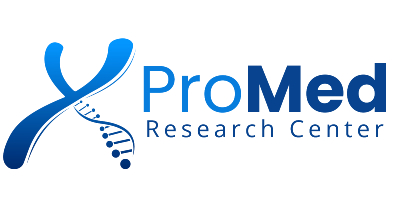.
Women's Health Test
This women’s health test gives you wellness insights from the inside out.
Knowledge equates to strength, and these assessments provide the insights necessary for fortifying your future. Gain a holistic view of your health and well-being with our extensive array of tests designed to forewarn you about prevalent health issues such as diabetes, cardiovascular conditions, hormonal imbalances, thyroid performance, and beyond.
To diagnose anemia, a blood test called a complete blood count (CBC) is commonly used. This test measures the quantity of red blood cells and helps identify anemia. Additionally, levels of iron, vitamin B-12, and folate are assessed, as deficiencies in these minerals and vitamins are frequent contributors to anemia.
Test Details
Sample Type: Blood & Urine
Collection Method: In person at Promed
Age: 18+
Results: 1 day from when your sample arrives
HSA/FSA: Accepted
Preparation: Please ensure you do not eat or drink anything except water for 12 hours prior to your sample collection. For those using supplements with biotin, also known as vitamin B7 or B8, vitamin H, or coenzyme R, which are often present in hair, skin, and nail wellness products, it’s advised to allow a minimum of 72 hours to pass after your last intake before proceeding with the sample collection. This helps to ensure the accuracy of your test results.
Sample Type: Blood & Urine
Collection Method: In person at Promed
Age: 18+
Results: 1 day from when your sample arrives
HSA/FSA: Accepted
Preparation: Please ensure you do not eat or drink anything except water for 12 hours prior to your sample collection. For those using supplements with biotin, also known as vitamin B7 or B8, vitamin H, or coenzyme R, which are often present in hair, skin, and nail wellness products, it’s advised to allow a minimum of 72 hours to pass after your last intake before proceeding with the sample collection. This helps to ensure the accuracy of your test results.
Why Consider This Test
Concerned about heart health?
Both women and men share common risk factors for chronic heart disease (CHD), yet the impact of these factors can vary by gender. Notably, women are more susceptible to the CHD risks associated with diabetes. Additionally, women face unique risk factors such as those related to birth control pills and menopause, which do not affect men.
At risk for diabetes?
Current estimates suggest that there are 12 million women aged 20 and above who are living with diabetes, and around 27 million who are likely to have prediabetes.
Want to learn more about your thyroid?
One in eight women will develop thyroid problems during her lifetime.
Stop wondering, start testing.
Get answers to you most common health questions quickly and easily.
FAQ
What are routine blood tests for women?
For monitoring women’s health, standard blood tests are conducted to assess blood cell levels, thyroid function, and cholesterol and lipid profiles. These tests offer valuable insights into one’s health status. A thorough health assessment for women encompasses standard blood examinations like a complete metabolic panel (CMP), complete blood count (CBC), and urinalysis, which are commonly advised by healthcare professionals during yearly check-ups.
How often should women take this blood panel?
Routine health check-ups are essential for the early identification of medical conditions, setting a health benchmark, and tracking the overall health and well-being of women over time. Health professionals commonly recommend a comprehensive health panel annually during a routine physical examination.
How do I check my hormone levels?
Assessing hormone concentrations provides a reliable indicator of thyroid health and performance. Our extensive test for women’s health evaluates crucial physiological functions, notably the levels of thyroid-stimulating hormone (TSH). To gain further understanding of women’s health issues, consider exploring our additional hormone testing options, which include tests focused on fertility and menopause.
